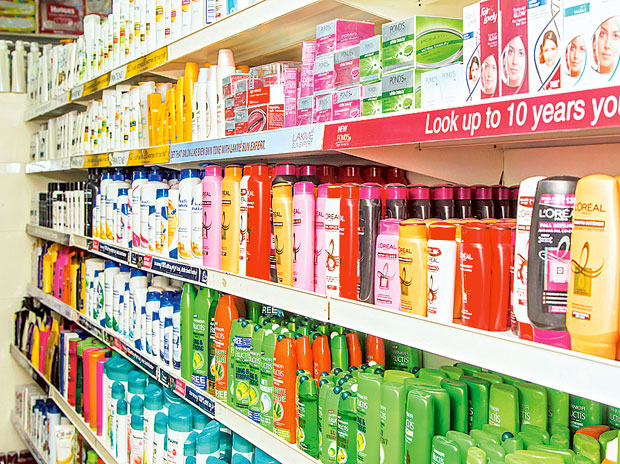The initial cheer over lower tax rates for some mass-consumption consumer goods proved to be short-lived. The detailed goods and services tax (GST) rate of 1,211 items that came late on Thursday night was like the sting in the tail, with major consumer goods firms expressing concerns that the introduction of the new tax regime would lead to price increase of most discretionary items. That includes durables, mobile handsets, aerated drinks and sanitaryware, among others.
While the rates for most fast moving consumer goods items were in line with expectations, discretionary spending might be hit in a market that already faces a slowdown.
Prices of TV sets, refrigerators, washing machines and air conditioners might see price increases of 1.5-4 per cent in the coming days. Effective tax rates for these items have been set at 28 per cent, up from the 24-26.5 per cent at present. Seniors at major durables makers say it is imperative that they pass on the additional burden to consumers. They were, they say, already finding it difficult to absorb a rise in material costs for TV panels and compressors.
“Under the new GST tax slab, a price rise of 4 per cent and upwards can be expected for consumer durables. The trade partners though might have a slight impact due to input tax but they can recover by increasing their selling price,” said Manish Sharma, president and chief executive at Panasonic India and South Asia.
At a time when the government is aggressively pushing for digitisation, where smartphones and value added feature phones are expected to play a central role, the tax on these would increase. The effective rate on such items is presently eight to nine per cent; under GST, this is set to rise up to 18 per cent. “Considering smartphones at par with consumer durable items is incorrect,” said Syed Tajuddin, chief executive officer, Coolpad India.
Pardeep Jain, MD at Karbonn Mobiles, said: “Keeping with the ‘Digital India’ objectives, the ideal GST rate should have been five per cent. The additional price burden will have to be unwillingly passed on to consumers, to sustain profitable growth for our business.”
“The rates declared for IT (information technology) products seem on the higher side. Clarity is awaited on GST on differential duty on imports and local manufacturing, on services and treatment of area-based exemptions,” said Rajeev Jain, group chief financial officer (CFO), Intex Technologies.
Indian Beverage Association said, “We are extremely disappointed with sweetened aerated water and flavoured water being placed in the highest tax slab rate of 28 per cent, combined with an additional cess of 12 per cent. The effective tax rate of 40 per cent on these products under the GST regime is against the stated policy of maintaining parity with the existing weighted average tax. This will have a negative ripple effect and hurt the entire eco-system of farmers, retailers, distributors and bottlers.”
Coca-Cola India gets a little over 60 per cent of its Rs 10,200-crore yearly sale from aerated drinks. PepsiCo generates nearly 45 per cent. However, a 12 per cent rate on fruit juices and milk-based drinks is a breather; the two have been expanding their portfolio outside of colas for some time. Most staple consumer goods such as dairy products, meat derivatives, breakfast cereals and processed vegetables have been kept under the 18 per cent or lower tax brackets, in line with expectations, companies said. Some items have been taxed higher.
“We are disappointed with the decision to levy 12 per cent GST on ayurvedic medicines and products, which we feel will be adverse for the category, at a time when the government has been talking about promoting traditional Indian alternative medicine,” said Lalit Malik, CFO, Dabur India.
Sanitarywares and bathroom products will be taxed at 28 per cent; the current rate is 24 per cent. “Driving a luxury car and going to the toilet will cost you the same,” said K E Ranganathan, MD, Roca Bathroom Products.
Impact of GST rates on various sectors and companies:



Notes: (a) Current effective rate includes central excise duty and state VAT. (b) Swachh Bharat, Krishi Kalyan and Infrastructure cess to be subsumed in GST within one year of implementation. (c) Entertainment tax is 27% on net ticket sales.

Source: CBEC, Kotak Institutional Equities
